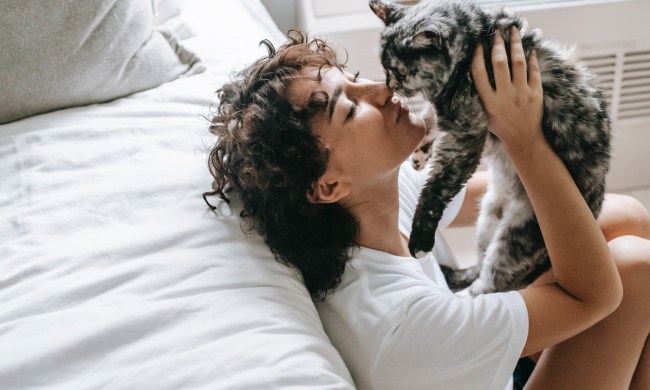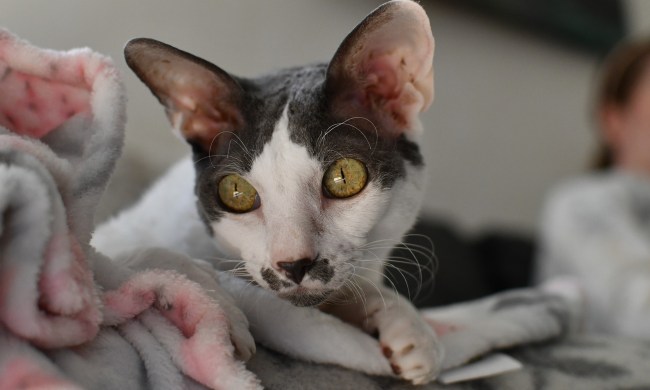In the pet world, there’s a decent amount of focus on dog breeds. There are so many distinct breeds with different physical and social characteristics. Cats just get grouped into one bucket: cats. Sometimes, people consider them as “short-haired” and “long-haired” cats, but that’s it.
However, there are several different types of cats, too, and you’ll want to consider their preferred lifestyles before making them a part of yours. Finding the right fit for your home is essential. It helps ensure you and your feline build a lifelong friendship.
These five different cat breeds are super popular. Learn more about them to see if they’re the perfect feline for you.
5 different cat breeds to consider
There are many different types of cats, but these five are some of the most common. Here’s what to know about their health and behavior.
Persian
- Life span: 12-17 years
- Size: 7-12 pounds, 14-18 inches
- Physical: Long face, short muzzle, long coat with many permissible colors (white, silver, golden, bicolor, chocolate, and more).
- Social: Quiet and sweet, but a bit standoffish
- Get if: You want a cat that loves you but doesn’t need constant attention
- Avoid if: You can’t stand tons of shedding.
American shorthair
- Life span: 15-20 years
- Size: 8-12 pounds, 8-10 inches
- Physical: Short coat with many colors, including white, brown, black, and orange
- Social: Gentle, generally good with children and other pets
- Get if: You want an all-American cat with minimal shedding (relatively speaking) or have small children and other pets.
- Avoid if: You’re looking for a truly unique feline
Abyssinian
- Life span: 9-13 years
- Size: 8-12 pounds, 8-12 inches
- Physical: Short, silky coats coat, low shedding, triangular head, and large ears
- Social: Playful, curious, active, and loving
- Get if: You want a cat that could double as a dog personality-wise
- Avoid if: You’re looking for an aloof, laid-back cat
Siamese
- Life span: 12-15 years
- Size: 5-8 pounds, up to 14 inches
- Physical: Short coat, triangular head, and piercing blue eyes
- Social: Affectionate, active, and often bonds with a specific person
- Get if: You’re looking for a new best friend with gorgeous eyes
- Avoid if: You want a cat that bonds with the whole family or one with fewer health challenges – Siamese cats are prone to GI issues, tumors, and eye issues
Maine Coon
- Life span: 12-15 years
- Size: 8 20 pounds, up to 16 inches
- Physical: Large or medium coats that are smooth and silky
- Social: Playful, active, and loving
- Get if: You’re looking for a giant, active kitty
- Avoid if: You’re looking for a small, short-haired cat and don’t want a high monthly kitty grocery bill; generally, Maine Coons can eat the same diet as other cats, but their large size often requires more kibble — a vet can give the best insights on portioning
Resources to research different types of cats
These resources can help you learn more about many different cat breeds.
- Vets see cats all day, every day. They can provide insights into common health conditions specific breeds are prone to and social characteristics.
- Like vets, local shelters and rescues are dedicated to caring for animals. They also want to help homeless cats find forever families. Speaking to the shelter staff about specific breeds can help narrow down your choices.
- Spend time with loved ones’ cats, and ask them about the kitty’s personality and needs. Getting first-hand knowledge of what it’s like to raise a certain breed on a long-term basis is useful.
Also, no two cats are alike, even in the same breed. Some kitties go against the grain. For example, one Persian may not be aloof, and a specific Abyssinian may not be as playful as most in the breed. Meeting a cat and speaking with the shelter staff or a reputable breeder can help you make the most informed decision.





